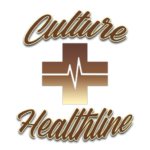
At Culture Healthline, we aim to educate and inform our audience about the diverse specialties within the medical field. Whether you’re a patient seeking the right care or a student aspiring to become a doctor, understanding these specialties can help you make informed decisions about your health and career path. Each medical specialist plays a crucial role in helping patients achieve and maintain optimal health. This guide provides an in-depth look at various medical specialties, highlighting their unique skills and competencies.
Allergy & Immunology
Allergy & Immunology specialists, also known as allergists, diagnose, treat, and manage allergies, asthma, and immunologic disorders, including primary immunodeficiency disorders. If you suffer from chronic allergies or immune system issues, an allergist can help manage these conditions and improve your quality of life.
For aspiring doctors: Becoming an allergist requires specialized training in both internal medicine and immunology, making it a challenging but rewarding path.
Anesthesiology
Anesthesiologists are medical doctors who specialize in administering anesthesia to prevent pain during surgeries and procedures. They play a crucial role in patient care before, during, and after surgery, ensuring comfort and safety.
For aspiring doctors: Anesthesiology offers various subspecialties, including critical care, pain medicine, and pediatric anesthesiology, providing multiple career paths within this field.
Dermatology
Dermatologists specialize in conditions affecting the skin, hair, and nails. From acne and eczema to skin cancer, dermatologists are experts in diagnosing and treating a wide range of dermatological issues.
For aspiring doctors: Dermatology is a highly competitive field with opportunities to specialize in areas like pediatric dermatology and dermatopathology.
Diagnostic Radiology
Diagnostic Radiologists use imaging techniques such as X-rays, CT scans, MRIs, and ultrasounds to diagnose diseases and injuries. They play a vital role in modern medicine by providing detailed images that guide diagnosis and treatment.
For aspiring doctors: This specialty combines technology and medicine, offering subspecialties in areas like cardiovascular radiology and interventional radiology.
Emergency Medicine
Emergency Medicine physicians provide immediate care for acute illnesses and injuries. They work in emergency departments and pre-hospital settings, making quick decisions to save lives.
For aspiring doctors: This fast-paced field offers subspecialties in pediatric emergency medicine, sports medicine, and medical toxicology.
Family Medicine
Family Medicine Doctors treat patients of all ages, focusing on health and wellness within the context of their families and communities. They provide comprehensive care, from preventive services to managing chronic conditions.
For aspiring doctors: Family medicine is ideal for those who enjoy building long-term relationships with patients and offering holistic care.
Internal Medicine
Internal Medicine Physicians, or internists, specialize in adult medicine, managing complex and chronic conditions. They often develop long-term relationships with patients, providing ongoing care for various health issues.
For aspiring doctors: Internal medicine offers numerous subspecialties, including cardiology, gastroenterology, and infectious disease, allowing for diverse career opportunities.
Medical Genetics
Medical Geneticists focus on the interaction between genes and health, diagnosing and managing hereditary disorders. They use advanced genetic testing to provide personalized care.
For aspiring doctors: This field is at the forefront of medical research and technology, offering opportunities to work in clinical and research settings.
Neurology
Neurologists diagnose and treat disorders of the brain and nervous system. They handle conditions ranging from epilepsy to multiple sclerosis, playing a crucial role in managing neurological health.
For aspiring doctors: Neurology offers subspecialties such as child neurology and neuromuscular medicine, providing varied career paths.
Nuclear Medicine
Nuclear Medicine specialists use small amounts of radioactive substances to diagnose and treat various conditions, including cancer. This field combines multiple disciplines, including chemistry and physics.
For aspiring doctors: Nuclear medicine is a highly specialized field with a focus on cutting-edge diagnostic and therapeutic techniques.
Obstetrics and Gynecology (OB/GYN)
OB/GYNs specialize in the medical and surgical care of the female reproductive system. They provide comprehensive care for women’s health issues, from childbirth to menopause.
For aspiring doctors: OB/GYN offers subspecialties such as reproductive endocrinology and gynecologic oncology, providing diverse career opportunities.
Ophthalmology
Ophthalmologists are eye care specialists who diagnose and treat eye and vision conditions. They are trained to perform eye surgeries and provide comprehensive eye care.
For aspiring doctors: Ophthalmology combines medical and surgical skills, with subspecialties including glaucoma and pediatric ophthalmology.
Pathology
Pathologists provide diagnostic information through laboratory testing, impacting patient care across various medical disciplines. They play a critical role in diagnosing diseases and guiding treatment.
For aspiring doctors: Pathology offers numerous subspecialties, such as forensic pathology and molecular pathology, allowing for specialized career paths.
Pediatrics
Pediatricians provide medical care for children, managing their physical, mental, and emotional well-being. They treat a range of conditions, from common illnesses to complex diseases.
For aspiring doctors: Pediatrics offers subspecialties like pediatric cardiology and pediatric oncology, providing opportunities to focus on specific areas of child health.
Physical Medicine and Rehabilitation
Physiatrists treat conditions affecting the brain, spinal cord, nerves, bones, joints, ligaments, tendons, or muscles. They focus on improving patients’ quality of life through rehabilitation.
For aspiring doctors: This field offers subspecialties such as pediatric rehabilitation medicine and sports medicine, providing diverse opportunities for specialization.
Preventive Medicine
Preventive Medicine Physicians focus on preventing disease and promoting health through proactive care. They help patients develop healthy habits and prevent chronic diseases.
For aspiring doctors: Preventive medicine includes subspecialties like aerospace medicine and occupational medicine, offering unique career paths.
Psychiatry
Psychiatrists diagnose and treat mental, emotional, and behavioral disorders. They provide comprehensive care, addressing both mental and physical aspects of psychological conditions.
For aspiring doctors: Psychiatry offers numerous subspecialties, such as addiction psychiatry and forensic psychiatry, providing varied opportunities to specialize.
Radiation Oncology
Radiation Oncologists use radiation therapy to treat cancer, working closely with other specialists to develop treatment plans. They use advanced technology to target and treat tumors.
For aspiring doctors: Radiation oncology combines patient care with advanced technology, offering subspecialties in pain medicine and hospice care.
Surgery
Surgeons perform operations to treat diseases and injuries, leading teams of medical professionals in the operating room. They specialize in various types of surgery, from general to highly specialized procedures.
For aspiring doctors: Surgery offers numerous subspecialties, including neurosurgery, orthopedic surgery, and pediatric surgery, providing diverse and challenging career paths.
Urology
Urologists specialize in conditions affecting the genitourinary system, treating all genders. They diagnose and treat issues related to the kidneys, bladder, prostate, and reproductive organs.
For aspiring doctors: Urology offers subspecialties such as pediatric urology and urologic oncology, providing varied opportunities for specialization.
Conclusion
Understanding the various medical specialties can help patients find the right care and guide aspiring doctors in choosing their career paths. Each specialty offers unique challenges and rewards, contributing to the overall goal of improving health and well-being. For more detailed information on each specialty, visit our comprehensive guides on Culture Healthline. Stay informed and take charge of your health and career by exploring the diverse fields of medicine available to you.

